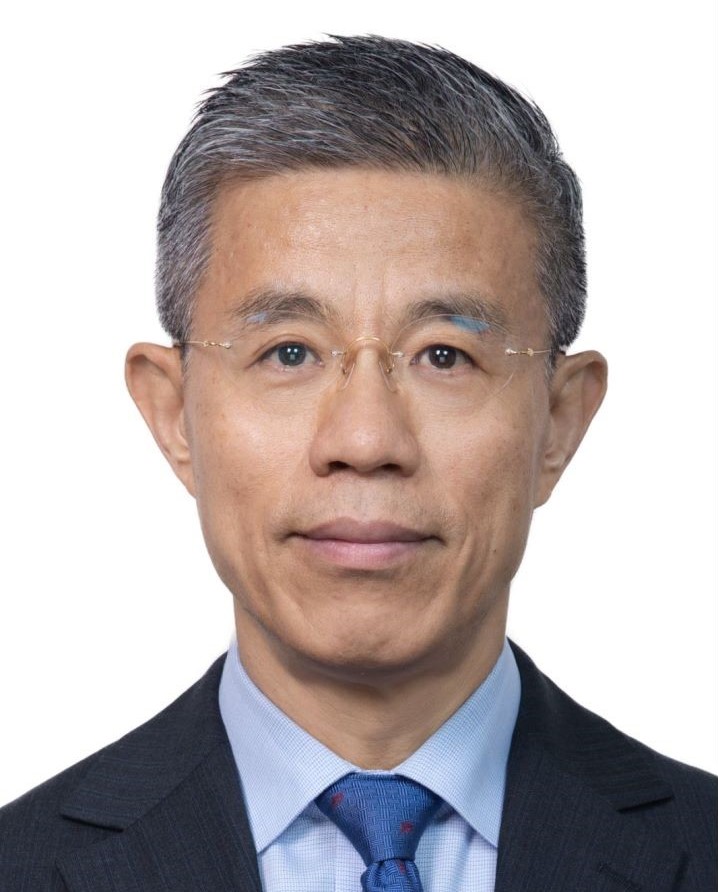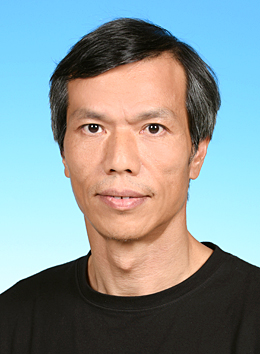Speakers 2025
Keynote Speaker Ⅰ

Prof. Shugen Ma
IEEE Fellow, AAIA Fellow, JSME Fellow, Foreign Fellow of the EAJ
The Hong Kong University of Science and Technology (Guangzhou), China
Biography: Professor Shugen Ma (IEEE Fellow, AAIA Fellow, JSME Fellow, Foreign Fellow of the EAJ) received a Ph.D. in Mechanical Engineering Science from the Tokyo Institute of Technology. He is now a professor of the Robotics and Autonomous Systems Thrust of Systems Hub at the Hong Kong University of Science and Technology (Guangzhou). Before he joined HKUST (GZ), he was a professor at Ritsumeikan University and a visiting professor at Johns Hopkins University, Shenyang Institute of Automation of CAS, Tianjin University, and Harbin Institute of Technology, respectively. Professor Ma’s research interests include but are not limited to the design and control of environment-adaptive robots, amphibious robots, field robotics, and biologically inspired robotics. He has published over 500 papers in major journals and conference proceedings, developed over 50 novel robot systems with over 80 patents, and supervised 45 doctoral students and over 100 M. Phil. students to graduation. He has also been featured in the list of the world’s top 2% of scientists published by Stanford University. Prof. Ma is a Professor Emeritus of Ritsumeikan University, a Foreign Fellow of the Engineering Academy of Japan, and the general chair of IROS 2022 (a top robotics conference). He founded the ROBIO conference in 2004, was the general chair of ROBIO 2004, ROBIO 2010, and ROBIO 2016, and served many societies and conferences.
Speech Title: From Study of Biomimetic Robotics to Design of Environment-Adaptive Robots
Abstract: Nature systems that have bodies with many degrees of freedom are often considered the ultimate models for machines. To confer the motion performance advantage of animal systems on robotic machines, we conducted in-depth studies on the motion characteristics of biological systems at the biomechanical level. We then used the insights we obtained to develop intelligent biomimetic robots to achieve "intelligence," "environment adaptation," "flexibility," and "energy-saving." In this talk, I would like to introduce the snake-like robots we developed and share the research outcomes we reached. I will also provide some innovative designs of environment-adaptive robots for possible applications.
Keynote Speaker Ⅱ

Prof. James Tin-Yau KWOK
IEEE Fellow
Hong Kong University of Science and Technology, China
Biography: James Kwok is a Professor in the Department of Computer Science and Engineering, Hong Kong University of Science and Technology. He is an IEEE Fellow. He has served / is serving as an Associate Editor for the IEEE Transactions on Neural Networks and Learning Systems, Neural Networks, Neurocomputing, Artificial Intelligence Journal, International Journal of Data Science and Analytics, and Machine Learning Journal. He is also serving as Senior Area Chairs of major machine learning / AI conferences including NeurIPS, ICML, ICLR, IJCAI. He is on the IJCAI Board of Trustees. He is recognized as the Most Influential Scholar Award Honorable Mention for "outstanding and vibrant contributions to the field of AAAI/IJCAI between 2009 and 2019". Prof Kwok is the IJCAI-2025 Program Chair.
Speech Title: Vision-Language Models: Tuning and Trustworthiness
Abstract: Vision-language models (VLMs) are now widely used in various vision-language modeling tasks. However, there are still a number of challenges. For example, during fine-tuning, multiple models with various hyperparameter configurations are often created, but typically only one of these models is actually utilized in the downstream task. Moreover, empirically, vision-language models are more vulnerable to jailbreak attacks than their LM predecessors. To address the first issue, we consider the learned soup, which combines all fine-tuned models with learned weighting coefficients. While this can significantly enhance performance, it is also computationally expensive. We propose to mitigate this by formulating the learned soup as a computationally-efficient hyperplane optimization problem and employing block coordinate gradient descent to learn the mixing coefficients. Finally, to construct robust VLMs, we propose a training-free protecting approach that exploits the inherent safety awareness of LLMs, and generates safer responses via adaptively transforming unsafe images into texts to activate the intrinsic safety mechanism of pre-aligned LLMs in VLMs.
Keynote Speaker Ⅲ

Prof. Hong Cheng
University of Electronic Science and Technology of China, China
Biography: Hong Cheng is a full professor at School of Automation Engineering, University of Electronic Science and Technology of China. He was awarded the “Leading Talent in Science and Technology Innovation of National Ten Thousand Plan” in 2018. He is a Director of Center for Robotics, and Engineering Research Center of Human-Robot Intelligent Technologies and Systems. He is the Associate dean of School of Automation Engineering, and Artificial Intelligence Research Institute. He is a Chairman of Intelligent Rehabilitation Committee of Chinese Rehabilitation Medicine Association, and Ethics Committee of University of Electronic Science and Technology. His research interests include: artificial intelligence and robotics.
Speech Title: Universal (Humanoid) Robots and Their Applications
Keynote Speaker Ⅳ

Prof. Guoqiang Hu
Nanyang Technological University, Singapore
Biography: Dr Guoqiang Hu is currently a professor in the School of Electrical and Electronic Engineering at Nanyang Technological University, Singapore. Before joining NTU Singapore in 2011, he was an assistant professor in the Department of Mechanical and Nuclear Engineering at Kansas State University, USA, from 2008 to 2011. He received Ph.D. in nonlinear controls and robotics from University of Florida in 2007. His research interests are in AI and robotics. Specifically, he works on optimization and control, game theory, learning algorithms and data science, with applications to robotics and smart city systems. He received several awards, including Best Paper in Automation Award in the 14th IEEE International Conference on Information and Automation, Best Paper Award in the 36th Chinese Control Conference, Best Paper Award in the 4th Asia Pacific Conference of the Prognostics and Health Management Society, and Early Career Teaching Excellence Award by the School of EEE.
Speech Title: Multi-Robot Systems and Human-Robot Collaboration
Abstract: One of the challenges for autonomous multi-robot systems and human-robot system is the design of effective algorithms that enable the robots to work cooperatively and safely with other robots or humans. This talk will first give a brief review of multi-robot systems and human-robot collaboration, and then present some recent related research results. The research in this field has a wide range of potential engineering applications, including intelligent transportation, surveillance and search, warehouse logistics, advanced manufacturing, and environment monitoring.
Invited Speaker Ⅰ

Assoc. Prof. Haipeng Wang
Northwestern Polytechnical University, China
Biography: Haipeng Wang, Ph.D., Associate Professor at the School of Computer Science, Northwestern Polytechnical University. Visiting scholar at the Human-Computer Interaction Institute (HCII), Carnegie Mellon University (CMU), USA. Director of the Shaanxi Union Research Center of University and Enterprise for Intelligent Bioinformatics Sensing and Human-Computer Interaction. Entrepreneurial mentor at JD City Innovation Center, Xi’an. Senior Member of the China Computer Federation (CCF); Member of the CCF Pervasive Computing Technical Committee, CCF Multimedia Technical Committee, and the China Society of Image and Graphics Multimedia Technical Committee. Member of IEEE and ACM. His research focuses on human-computer interaction, artificial intelligence. He has served as the chair and reviewer for multiple international conferences and journals, and received several provincial and ministerial-level Science and Technology Progress Awards.
Speech Title: Silent Speech and Gesture: A New Frontier in Multimodal Interaction
Abstract: As human-computer interaction advances, silent speech and gesture-based multimodal interaction are emerging as promising modalities to enhance communication, accessibility, and usability across various environments, including wearable devices and large-screen systems. This keynote explores innovative techniques integrating lip reading and gesture interaction to overcome challenges such as head pose variation, semantic ambiguity in gesture-based input, and efficient mode control for wearable systems. By bridging silent speech and gesture-based multimodal interaction, this research opens new avenues for natural, hands-free, and accessible user experiences. These advancements hold significant implications for accessibility, augmented reality, and next-generation interactive systems, paving the way for more intuitive human-computer collaboration.
